モバイルSplunk On-Call向けiOS 🔗
このトピックでは、iOSユーザーがSplunk On-CallモバイルアプリケーションのiOSバージョン特有の機能と性能を理解するのに役立ちます。
Splunk On-Callの連絡先を追加する 🔗
Splunk On-Callは、米国内の電話およびSMS通知配信に合計6つの発信元電話番号を使用しています。電話番号の完全なリストについては、モバイルアプリで開始する を参照してください。これは、通知をタイムリーに配信するためのロードバランシング戦略の一環です。手動で連絡先を作成し、これらの番号を追加する必要はありません。アプリ内にこのような機能があります。
アプリケーションの右下隅にある Settings メニューを選択し、Notifications ボタンを選択して、Add Splunk On-Call to Your Contacts を選択します。
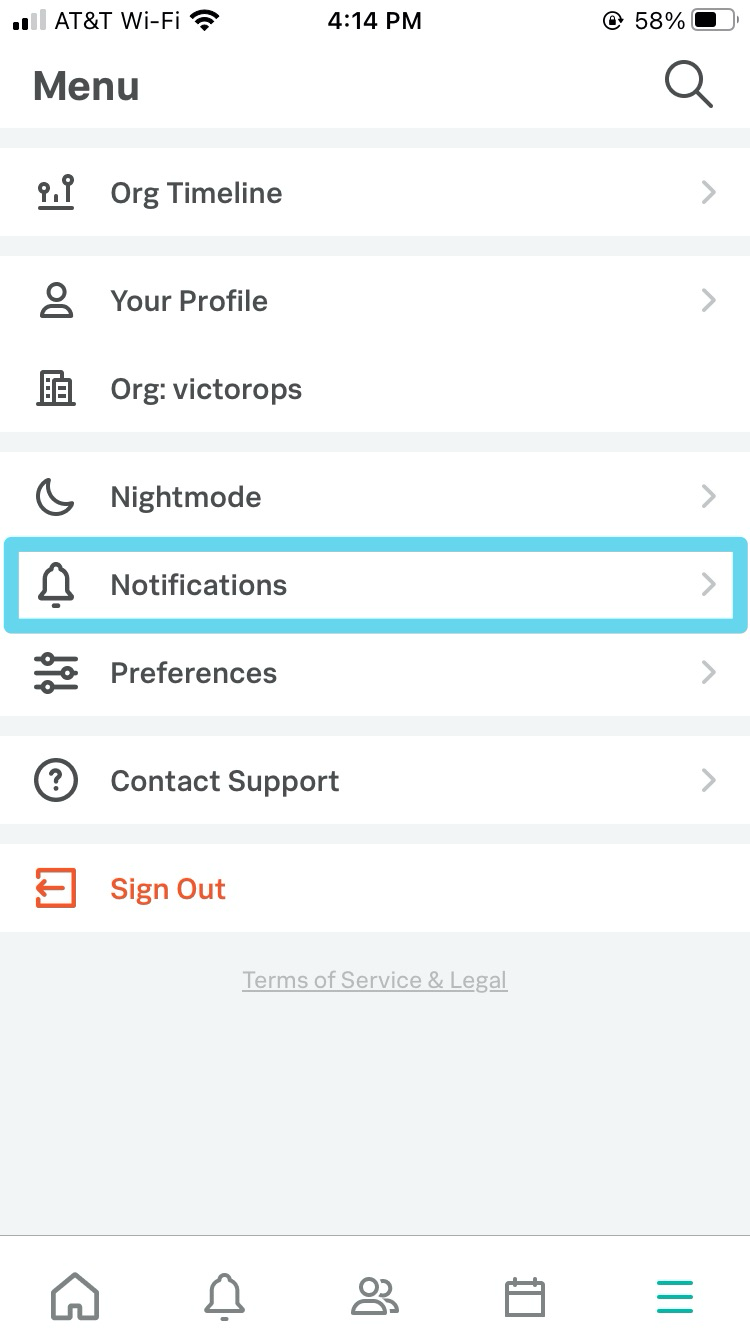
![[Splunk On-Callを連絡先に追加する] を選択します。](../../_images/mob-ios21.png)
これにより、Splunk On-Call 番号がすべて含まれた新しい連絡先が自動的に作成されます。
これにより、Splunk On-Callをお気に入りに追加し、Splunk On-Callからの通話が Do Not Disturbモードを無効にできるようになります。また、Splunk On-Callの連絡先に Emergency Bypass機能を付与することで、携帯電話の電源が入っていれば、携帯電話の状態に関係なく常に電話や SMSの通知を受け取ることができるようになります。
iOSアプリアクセス許可設定 🔗
デバイスの適切なアクセス許可と設定は、Splunk On-Call通知をすべて確実に受信するために非常に重要です。
以下は、iOSデバイスに強くお勧めするアクセス許可設定です。
一般的なアプリのアクセス許可 🔗
iOS Settings に移動します。アプリケーション設定までスクロールダウンし、Splunk On-Callを選択します。
Splunk On-Call設定で、Cellular Data がOnになっていることを確認します。
プッシュ通知のアクセス許可がオンになっていることを確認してください。
…note::プッシュ通知のアクセス許可がSplunk On-Callアプリに付与されていない場合、デバイスはSplunk On-Callに登録されないため、ユーザープロファイルに表示されません。
Notifications (Badges, Sounds, Banners) に移動して、すべての設定がオンになっていることを確認してください。
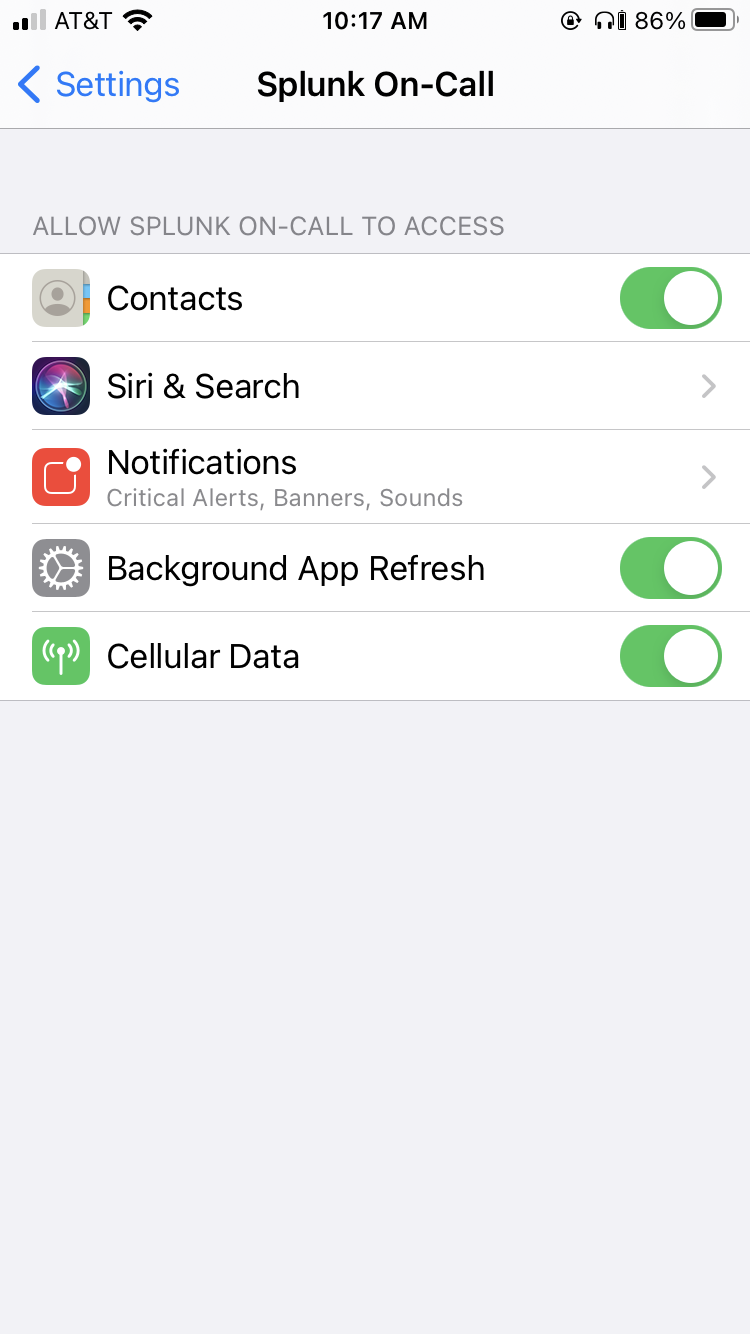
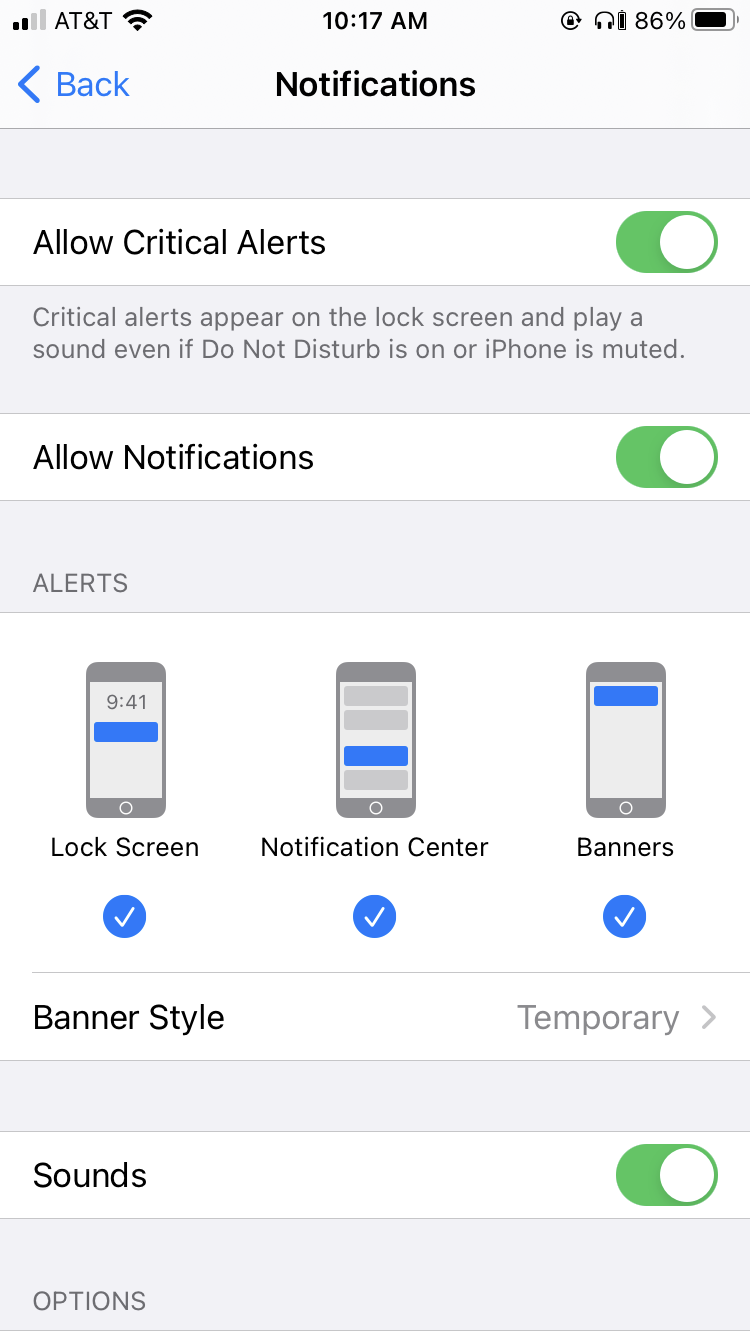
Do Not Disturbモード 🔗
プッシュ通知 🔗
ページングプッシュ通知のDo Not Disturbモードをオーバーライドするには、前のセクションで定義したように、Allow Critical Alerts トグルが有効になっていることを確認します。
次に、アプリの Settings セクション、Notifications の順に移動します。
Incidents are Critical Alerts のトグルを有効にします。
SMSまたは電話の呼び出し 🔗
Splunk On-Callを連絡先として追加する必要があります。
次に、連絡先リストでSplunk On-Callをお気に入りとして追加します。
Splunk On-Callをお気に入りとして追加するには、Contacts、Splunk On-Call Contacts の順に移動して、Add to Favorites を選択します。
適切なDo Not Disturb設定が有効になっていることを確認してください。これを行うには、Settings、Do Not Disturb、Allow Calls from Favorites の順に選択します。
これにより、Do Not Disturb状態でも通話やSMSメッセージを受信できるようになります。
緊急バイパス 🔗
Splunk On-Callを緊急バイパス連絡先として設定するオプションがあります。これにより、Splunk On-Callの連絡先をお気に入りに追加しなくても、Do Not Disturb状態のときに連絡できるようになります。
Splunk On-Callを緊急バイパス連絡先として追加するには、Contacts、Splunk On-Call Contact の順に移動し、Text Tone を選択します。Toggle Emergency Bypass をオンにします。
Splunk On-Callアプリの通知設定 🔗
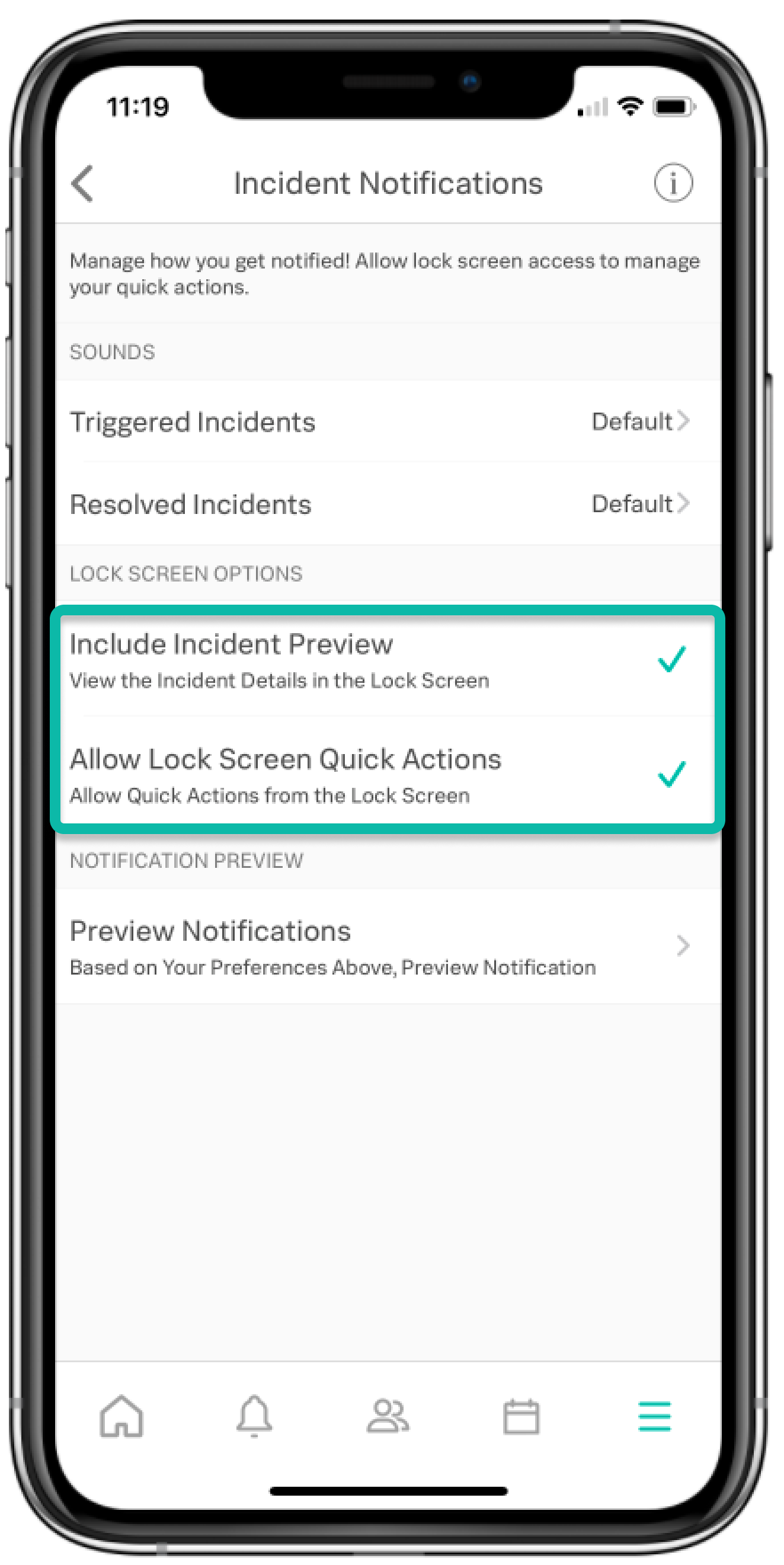
Splunk On-Call設定メニューでは、通知音の設定を編集することができます。
Incident Notifications を選択し、次に Sounds を選択します。
トリガーまたは解決済みインシデントのサウンド設定をカスタマイズします。
ここには、インシデントプレビューとインシデントクイックアクションのロック画面オプションもあり、これらは自動的にオンに設定されます。
ロック画面から確認する 🔗
Splunk On-Call通知オプションのひとつに、iOSデバイスへのプッシュ通知があります。携帯電話のロック中にプッシュ通知で通知された場合、ロック画面から直接アラートを確認することができます。
左にスワイプすると、選択元の Manage | View | Clear が表示されます
iPhone 6s以降の場合、強く押すと3D touch機能が起動し、すべてのアクションとオプションが表示されます。
インシデントを確認すると、承認が成功したことを確認する成功通知が送信されます。
iOSアプリのトラブルシューティング 🔗
スワイプレポートの送信方法 🔗
2本の指で画面を右から左にスワイプします
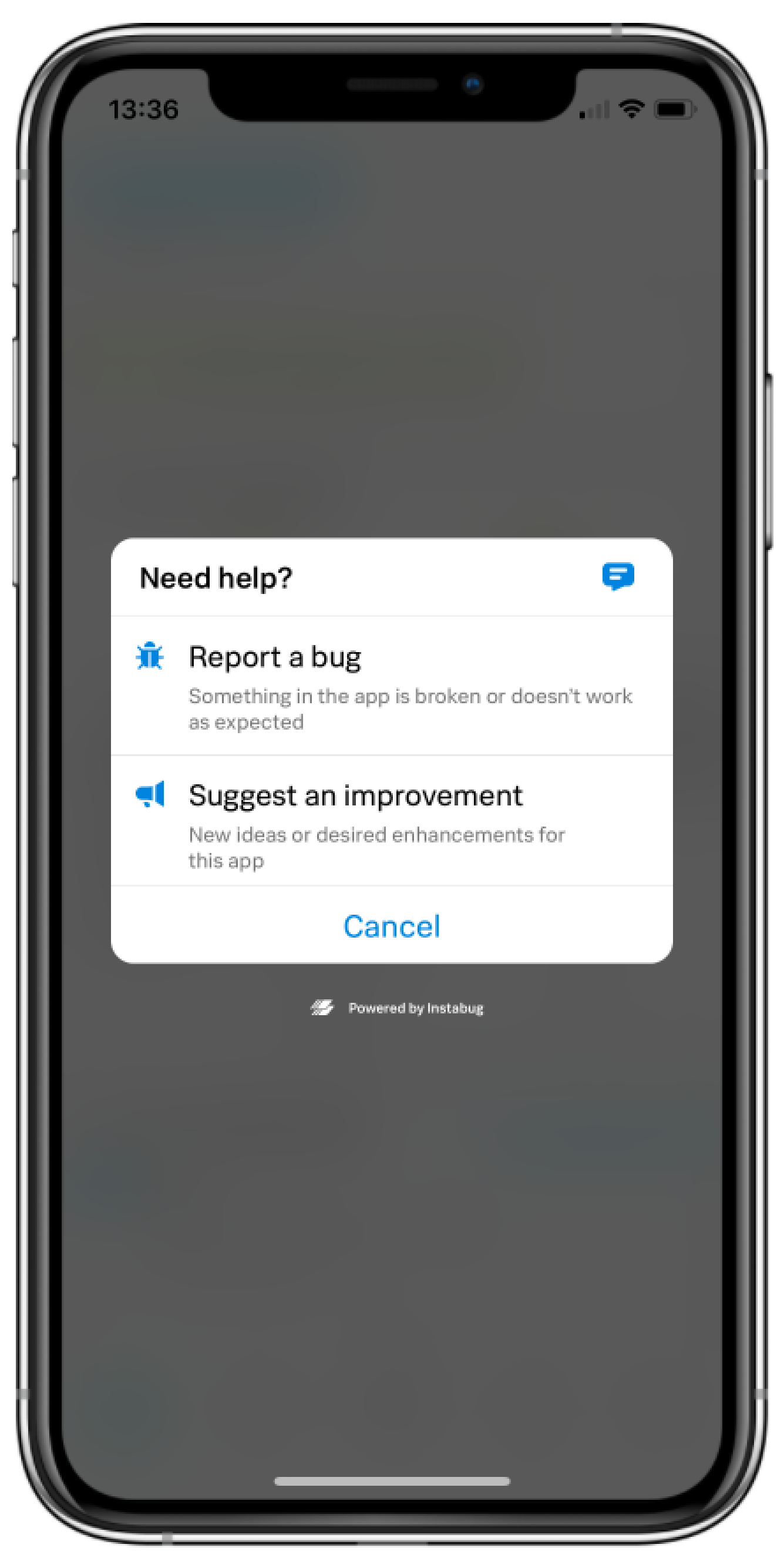
2本の指で右から左にスワイプすると、このウィンドウが表示されます
Report a Bug または Suggest an Improvement を選択する
そこから別の画面が表示され、そこでレポートに情報を追加したり、画面録画やスクリーンショットを取得したり、カメラロールからスクリーンショットを添付したりすることができます。
Splunk On-Callでモバイルデバイスをリセットします:
モバイルデバイスから#.設定アイコン(歯車)を選択してモバイルアプリからログアウトします。#.デバイスからモバイルアプリを完全に削除します。
WebUIから:
#.アカウントにログインし、右上のユーザー名を選択して個人プロファイルにアクセスします。「あなたのプロファイル」#を選択します。連絡方法からデバイスを削除します。デバイスに関連付けられている電話番号を削除する必要はありません。
モバイル機器から:
Splunk On-Callモバイルアプリを再インストールします。
Splunk On-Callアプリにログインします。
このプロセスは、デバイスの関連付けプロセスをやり直し、多くの場合、アプリの問題をクリアします。